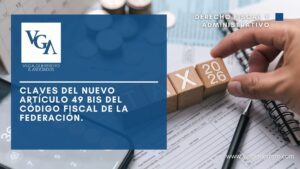A commercial company may find itself in need of increasing its share capital for various strategic and operational reasons. First, increasing share capital can be crucial to finance expansion projects, acquisitions, or significant investments that allow the company to grow and maintain its competitiveness in the market.
In addition, an increase in share capital can strengthen the company’s financial position, which in turn can increase investor confidence and improve its ability to obtain additional financing through loans or share issues. Also, in situations of financial difficulties, increasing share capital can be a way to improve the solvency and ability of the company to meet its financial obligations.
In a few words, increasing share capital becomes a strategic tool that can provide a corporation with the resources needed to thrive and meet the challenges that come its way. This prevailing need to increase the share capital constantly results in the vast majority of companies in Mexico being incorporated as variable capital companies.
But; How should an increase be made within the share capital?
To answer this question, it is necessary that we refer to article 178 of the General Law of Commercial Companies:
“Article 178.- The General Meeting of Shareholders is the Supreme Organ of the Company; it may agree and ratify all the acts and operations of the latter and its resolutions will be complied with by the person it designates, or in the absence of designation, by the Administrator or by the Board of Directors. The statutes may provide those resolutions taken outside the meeting, by unanimity of the shareholders representing all the shares with voting rights or of the special class of shares concerned, where appropriate, shall, for all legal purposes, have the same validity as if they had been adopted at a general or special meeting, respectively, provided that they are confirmed in writing. In matters not provided for in the statutes, the provisions of this law shall be applicable.”
This article establishes that the General Meeting of Shareholders is the highest authority within the company, and has the power to approve and confirm all operations and acts of the entity, with the obligation to be executed by the representative designated by said entity. Therefore, it is the Meeting that will have to decide on the increases in share capital.
In addition to the above, article 179 of the aforementioned law establishes that there are two types of general shareholders’ meetings, ordinary and, on the other hand, extraordinary:
“Article 179.- General Shareholders’ Meetings are ordinary and extraordinary. Both shall meet at the registered office and without this requirement shall be null and void, except in unforeseeable circumstances or force majeure.”
Corollary of the above we can ask; What kind of Meeting should we hold to carry out an increase in share capital?
Articles 180 and 182 of the Law set out the differences between the two types of meetings within society:
“Article 180.- Ordinary meetings are those that meet to deal with any matter other than those listed in Article 182.”
“Article 182.- Extraordinary meetings are those that meet to deal with any of the following matters: I.- Extension of the duration of the company; II.- Early dissolution of the company; III.- Increase or reduction of share capital; IV.- Change of object of the company; V.- Change of nationality of the company; VI.- Transformation of society; VII.- Merger with another company; VIII.- Issuance of preferred shares; IX.- Redemption by the company of its own shares and issuance of shares of enjoyment; X.- Bond issuance; XI.- Any other modification of the social contract, and XII.- Other matters for which the Law or the social contract requires a special quorum. These meetings may meet at any time.”
From the reading of the previous articles, specifically derived from article 182, section III, we could assure that the increase must be made through an extraordinary Meeting. However, as mentioned at the beginning of this text, a large number of commercial companies are constituted as variable capital companies, so it is necessary that we make a harmonious interpretation of the General Law of Commercial Companies; in particular Chapter VIII of the law in question, which refers to companies incorporated as companies with variable capital.
When analyzing this chapter we find various legal precepts that establish that companies that are constituted as companies with variable capital, under the principle of normative specialty, are governed by the provisions of the chapter in question and subsequently by those of the type of special company under which they have been constituted. Similarly, within this chapter we can find that for increases in variable capital no more formalities are required than those established in this chapter VIII, in accordance with the articles cited below:
“Article 213.- In companies with variable capital, the share capital shall be subject to an increase by subsequent contributions by the partners or by the admission of new partners, and to a decrease in said capital by partial or total withdrawal of the contributions, without any formalities other than those established by this chapter.”
“Article 214.- Companies with variable capital shall be governed by the provisions corresponding to the type of company in question, and by those of the public limited company relating to balance sheets and responsibilities of the directors, except for the modifications established in this chapter.”
In the same way, it will always be necessary to comply with the provisions of the articles of incorporation of the company in question, where sui generis issues may be agreed for such increases in accordance with article 216 of the aforementioned law:
“Article 216.- The constitutive contract of any company with variable capital shall contain, in addition to the stipulations that correspond to the nature of the company, the conditions established for the increase and decrease of the share capital. In joint stock companies, the social contract or the Extraordinary General Meeting will fix the capital increases and the form and terms in which the corresponding share issues must be made. Shares issued and not subscribed to provisional certificates, if any, shall be kept with the company for delivery as and when the subscription is made.”
Is it enough to hold an ordinary meeting within a variable capital company to increase the share capital adequately?
The short answer is no. Although the variable capital company may carry out the increase in share capital in its variable part by means of an ordinary meeting, it will always be necessary to record said increase in the book of capital variations. The foregoing is in accordance with article 219 of the aforementioned law.
“Article 219.- Any increase or decrease in the share capital shall be recorded in a registry book kept for that purpose by the company.”
In conclusion, if our commercial company is constituted as a variable capital company, we can make the increases in the variable part of the capital through an ordinary meeting, for which we must also attend to the form and terms stipulated within the statutes of the company itself. Having analyzed the previous points, it is useful to cite the following isolated thesis:
Digital registration: 2011605
Instance: Collegiate Circuit Courts
Tenth Epoch
Subject(s): Civil, Administrative
Thesis:III.1o.A.29 A (10th)
Source: Gaceta del Semanario Judicial de la Federación (Federal Judicial Weekly Gazette)
Type: Isolated Thesis
“VARIABLE CAPITAL COMPANIES. THE INCREASE AND DECREASE OF THIS AMOUNT DOES NOT REQUIRE THE HOLDING OF AN EXTRAORDINARY MEETING.
While it is true that Article 182, section III, of the General Law on Commercial Companies, establishes that extraordinary meetings will deal with, among other things, the increase or reduction of the share capital, it is also true that, according to the various 213 of that legislation, relating to companies with variable capital, it can be increased or decreased without further formalities than those established in chapter VIII of the same ordinance. Therefore, in the latter case, it is sufficient to record the corresponding modification in the register book of changes in the share capital of the company, in accordance with the principles of autonomy of the parties and contractual freedom, as well as the human right of freedom of association, that is, it is unnecessary to hold extraordinary meetings and, consequently, that the minutes derived from them are protocolized before a notary public or the Public Registry of Commerce, since this would contravene the aforementioned chapter VIII, as well as the autonomy of the company for its self-regulation. That is, the provisions that are not contained in the aforementioned chapter are applicable to companies with variable capital, so far as the modification of their minimum share capital and not with respect to the variable capital is concerned since the purpose of those is to allow it to be modified quickly and easily. “
FIRST COLLEGIATE COURT IN ADMINISTRATIVE MATTERS OF THE THIRD CIRCUIT.
Amparo directo 351/2015. Administradora de Servicios Gipol, S.A. de C.V. February 23, 2016. Unanimous vote. Speaker: René Olvera Gamboa. Secretary: Ricardo Manuel Gómez Núñez.
Note: In relation to the scope of this thesis, highlights the various isolated, published in the Judicial Weekly of the Federation, Seventh Epoch, Volumes 109-114, Fourth Part, January-June 1978, page 161, heading: “VARIABLE CAPITAL COMPANIES. THEY DO NOT NEED TO MODIFY THEIR SOCIAL DEED TO INCREASE OR DECREASE THEIR CAPITAL.”
This thesis was published on Friday, May 6, 2016 at 10:06 am in the Judicial Weekly of the Federation.
At Vega, Guerrero & Asociados we believe that corporate governance is essential in any company; Therefore, advice regarding increases or decreases in share capital is a daily necessity for the operations of any commercial company. Performing these acts in the proper manner is one of the legal services we offer as a means that can allow you to shield security and legal certainty for any legal effect, especially in tax matters.




